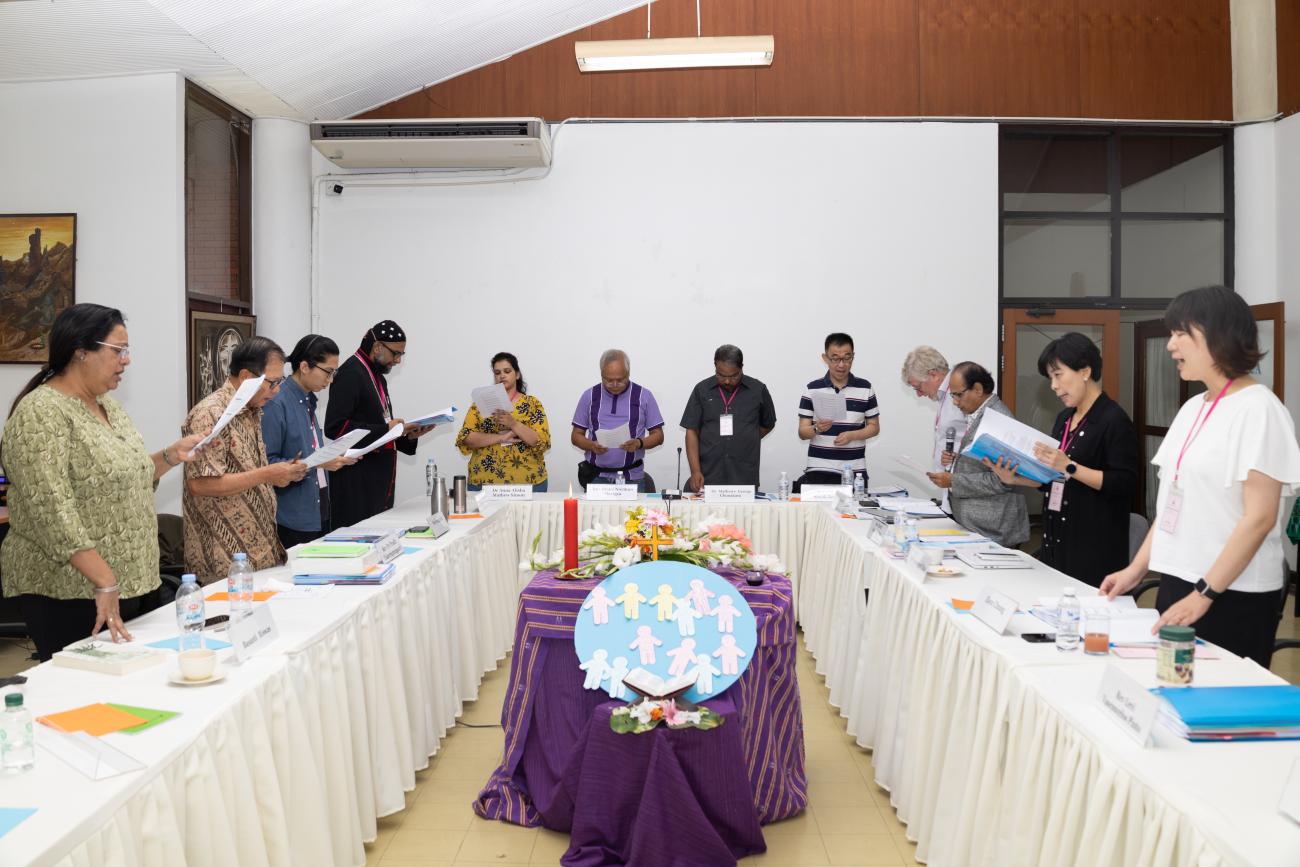CCA Executive Committee expresses concern over escalating conflicts and violence across Asia

Special prayers for peace in Asia were offered during the closing worship of the CCA Executive Committee Meeting on 19 January
Chiang Mai, Thailand: The Executive Committee of the Christian Conference of Asia expressed deep concern over the escalating conflicts and violence across Asia, emphasising the urgent need for peace and security.
The Statement highlighted the detrimental impacts of religious and ethnic conflicts, increasing militarisation, particularly noting the escalations of military actions between Iran and Pakistan, tensions in the Korean Peninsula, cross-strait tensions between China and Taiwan, and increasing arms build-up.
“Peace and well-being for all must be prioritised,” the Statement asserted, calling for a reduction in external influences that exacerbated Asian conflicts.
In India, the ethnic conflicts in Manipur have resulted in significant Christian community casualties and displacement. The Statement urged immediate action to stop the violence.
The Statement also addressed the dire situation in Myanmar, where ethnic communities were suffering under brutal military crackdowns, and called for the “full restoration of democracy and peace”.
Highlighting the plight of over 980,000 displaced Rohingya in Bangladesh, the Statement underscored the urgent need for a solution to their statelessness and suffering.
The economic and political crisis in Sri Lanka and the struggles for self-determination in West Papua were also emphasised in the Statement.
The Statement did not overlook the war in Gaza in the West Asia region, where ongoing war had led to widespread death and destruction, outbreaks of illness, and the potential for famine. It also pointed out the impact of the Russia-Ukraine war on Asian economies.
Emphasising the need for a strong ecumenical and prophetic witness, the Statement called for unity among Asian churches in addressing such complex challenges. “Peacebuilding depends on the prophetic voice of the Church,” the Statement stressed.
The newly constituted CCA Executive Committee met from 17 to 19 January 2024 at the CCA headquarters in Chiang Mai, Thailand.
The full text of the Statement issued by the Executive Committee can be found below:











